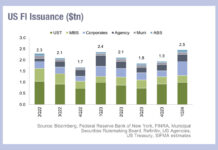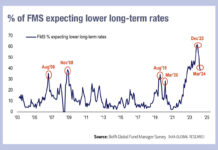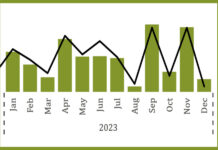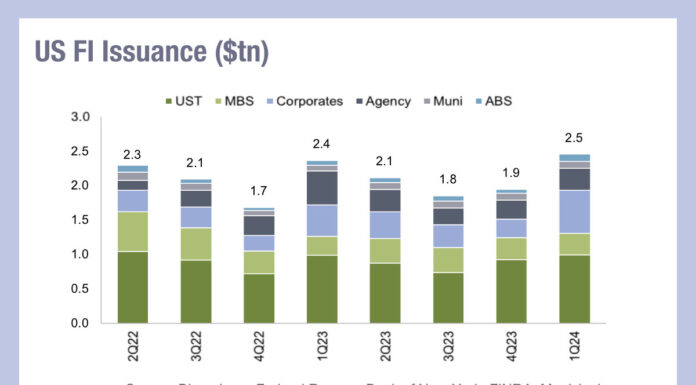Ratings agency Fitch has downgraded the United States’ long-term credit ratings to AA+ from AAA and removed the rating ‘Watch Negative’ stating “[It] reflects the expected fiscal deterioration over the next three years, a high and growing general government debt burden, and the erosion of governance relative to ‘AA’ and ‘AAA’ rated peers over the last two decades that has manifested in repeated debt limit standoffs and last-minute resolutions.”
At first many observers scoffed at the re-rating of the US given the latest news on its economy and potential to avoid a recession / secure a softer landing.
In a statement, Mohamed El-Erian, chief economic advisor to the management board of Allianz global Investors said, “I would pick the following variables to assess the impact on markets of the Fitch downgrade of the US sovereign credit rating: government bond yields; the dollar; and credit default swaps. The price reaction for all three has been noticeably muted … as predicted by the vast majority of those commenting on this yesterday, overnight, and early this morning.”
Secretary of the US Treasury, Janet Yellen issued the following statement on the decision by Fitch Ratings, “I strongly disagree with Fitch Ratings’ decision. The change by Fitch Ratings announced today is arbitrary and based on outdated data. Fitch’s quantitative ratings model declined markedly between 2018 and 2020 – and yet Fitch is announcing its change now, despite the progress that we see in many of the indicators that Fitch relies on for its decision. Many of these measures, including those related to governance, have shown improvement over the course of this Administration, with the passage of bipartisan legislation to address the debt limit, invest in infrastructure, and make other investments in America’s competitiveness.”
However analysts at Morgan Stanley noted, “Reverberations from Fitch’s downgrade of the United States’ long-term credit ratings to AA+ from AAA were clearly observable across risk assets. G10 risk-sensitive currencies – Antipodeans and Scandinavians – were notable underperformers alongside sharp moves lower in commodities (CO1: -2.01%) and equities (S&P 500: -1.38%). Against this backdrop, safe-havens (USD and JPY) staged broad-based advances. Credit spreads widened as both CDX IG and HY spreads made sharp moves wider from levels close to the tightest over the last 52 weeks.”
They cited the repeated debt limit standoffs and last-minute resolutions as sitting behind Fitch’s decision, noting that the rating agency estimates, “the general government (GG) deficit to rise to 6.3% of GDP in 2023, from 3.7% in 2022, reflecting cyclically weaker federal revenues, new spending initiatives and a higher interest burden.”
©Markets Media Europe 2023
























